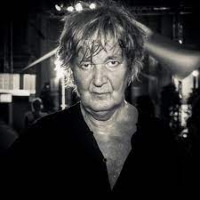Latest Sheet Music
Tay Zonday
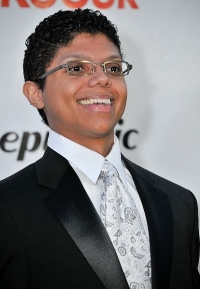
Adam Nyerere Bahner (born July 6, 1982), better known by the pseudonym Tay Zonday, is an American musician, voice actor, film actor, and social commentator. He was an MC for YouTube Live in 2008. He entered mainstream exposure when his song "Chocolate Rain" and accompanying video on YouTube became a popular Internet meme in July 2007. By December 2009, it had over 46 million views.
Chopin

Frédéric Chopin (1 March 1810 – 17 October 1849) was a Polish composer and virtuoso pianist of the Romantic period. He is widely regarded as the greatest Polish composer, and ranks as one of music's greatest tone poets.
He was born in the village of Żelazowa Wola, in the Duchy of Warsaw, to a Polish mother and French-expatriate father, and in his early life was regarded as a child-prodigy pianist. In November 1830, at the age of 20, Chopin went abroad; following the suppression of the Polish November Uprising of 1830–31, he became one of many expatriates of the Polish "Great Emigration."
In Paris, he made a comfortable living as a composer and piano teacher, while giving few public performances. A Polish patriot,
Chopin's extant compositions were written primarily for the piano as a solo instrument. Though technically demanding, Chopin's style emphasizes nuance and expressive depth rather than virtuosity. Chopin invented musical forms such as the ballade and was responsible for major innovations in forms such as the piano sonata, waltz, nocturne, étude, impromptu and prelude. His works are mainstays of Romanticism in 19th-century classical music.
He was born in the village of Żelazowa Wola, in the Duchy of Warsaw, to a Polish mother and French-expatriate father, and in his early life was regarded as a child-prodigy pianist. In November 1830, at the age of 20, Chopin went abroad; following the suppression of the Polish November Uprising of 1830–31, he became one of many expatriates of the Polish "Great Emigration."
In Paris, he made a comfortable living as a composer and piano teacher, while giving few public performances. A Polish patriot,
Chopin's extant compositions were written primarily for the piano as a solo instrument. Though technically demanding, Chopin's style emphasizes nuance and expressive depth rather than virtuosity. Chopin invented musical forms such as the ballade and was responsible for major innovations in forms such as the piano sonata, waltz, nocturne, étude, impromptu and prelude. His works are mainstays of Romanticism in 19th-century classical music.
Boys Will Be Boys

Boys Will Be Boys refers to multiple artists: 1) Powerpop band from Fairfax, VA 2) House supergroup made up of Tiësto, Angger Dimas and Showtek. 3) Indie rock/lo-fi band from Latvia 1) Boys Will Be Boys, those 4 simple word could easily sum up the band, Lehi (Vox/bass), Mark Wood (Drums/ pr…
Arturo Marquez
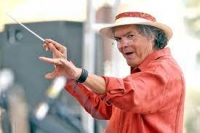
Arturo Márquez Navarro (born 20 December 1950) is a Mexican composer of orchestral music who uses musical forms and styles of his native Mexico and incorporates them into his compositions.Márquez was born in Álamos, Sonora, in 1950 where his interest in music began. Márquez is the first born of nine children of Arturo Márquez and Aurora Navarro. Márquez was the only one of the nine siblings who became a musician. Márquez's father was a mariachi musician in Mexico and later in Los Angeles and his paternal grandfather was a Mexican folk musician in the northern states of Sonora and Chihuahua. Because of Márquez's father and grandfather, he was exposed to several musical styles in his childhood, particularly Mexican "salon music" which would be the impetus for his later musical repertoire.
Mai Otome

My-Otome is an anime series created by Sunrise. Directed by Masakazu Obara and written by Hiroyuki Yoshino, it is a spinoff of My-HiME anime series and as such My-Otome takes place in a new setting with new main characters. The series originally premiered on TV Tokyo from October 6, 2005 to March 30, 2006.
Henry Martyn Hoisington
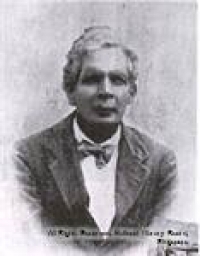
Henry Martyn (18 February 1781 – 16 October 1812) was an Anglican priest and missionary to the peoples of India and Persia. Born in Truro, Cornwall, ...
The Beach Boys
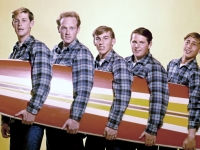
The Beach Boys are an American rock band formed in Hawthorne, California in 1961. The group's original lineup consisted of brothers Brian, Dennis, and Carl Wilson, their cousin Mike Love, and their friend Al Jardine.
Felix Mendelssohn

Jakob Ludwig Felix Mendelssohn Bartholdy, born, and generally known in English-speaking countries, as Felix Mendelssohn (February 3, 1809 – November 4, 1847) was a German composer, pianist, organist and conductor of the early Romantic period.
The grandson of the philosopher Moses Mendelssohn, he was born into a notable Jewish family, although he himself was brought up initially without religion, and later as a Lutheran. He was recognized early as a musical prodigy, but his parents were cautious and did not seek to capitalise on his abilities. Indeed his father was disinclined to allow Felix to follow a musical career until it became clear that he intended to seriously dedicate himself to it.
Early success in Germany was followed by travel throughout Europe; Mendelssohn was particularly well received in England as a composer, conductor and soloist, and his ten visits there, during which many of his major works were premiered, form an important part of his adult career. His essentially conservative musical tastes however set him apart from many of his more adventurous musical contemporaries such as Liszt, Wagner and Berlioz. The Conservatory he founded at Leipzig became a bastion of this anti-radical outlook.
Mendelssohn's work includes symphonies, concerti, oratorios, piano and chamber music. He also had an important role in the revival of interest in the music of Johann Sebastian Bach. After a long period of relative denigration due to changing musical tastes and antisemitism in the late 19th and early 20th centuries, his creative originality is now being recognized and re-evaluated. He is now among the most popular composers of the Romantic era.
The grandson of the philosopher Moses Mendelssohn, he was born into a notable Jewish family, although he himself was brought up initially without religion, and later as a Lutheran. He was recognized early as a musical prodigy, but his parents were cautious and did not seek to capitalise on his abilities. Indeed his father was disinclined to allow Felix to follow a musical career until it became clear that he intended to seriously dedicate himself to it.
Early success in Germany was followed by travel throughout Europe; Mendelssohn was particularly well received in England as a composer, conductor and soloist, and his ten visits there, during which many of his major works were premiered, form an important part of his adult career. His essentially conservative musical tastes however set him apart from many of his more adventurous musical contemporaries such as Liszt, Wagner and Berlioz. The Conservatory he founded at Leipzig became a bastion of this anti-radical outlook.
Mendelssohn's work includes symphonies, concerti, oratorios, piano and chamber music. He also had an important role in the revival of interest in the music of Johann Sebastian Bach. After a long period of relative denigration due to changing musical tastes and antisemitism in the late 19th and early 20th centuries, his creative originality is now being recognized and re-evaluated. He is now among the most popular composers of the Romantic era.
Rihanna

Rihanna (born Robyn Rihanna Fenty; February 20, 1988) is a Barbadian singer, model and fashion designer. She is the second artist, and first female, from Barbados to have received a Grammy Award (the first being Jimmy Senya Haynes). Rihanna is currently signed to the Def Jam Recordings label. She has attained four Billboard Hot 100 number ones thus far ("SOS", "Umbrella", "Take a Bow", and "Disturbia"), tying her with Mariah Carey and Beyoncé as the female solo artist with the most number ones this decade.
Rihanna came to fame in 2005 with the release of her debut album Music of the Sun, which featured her breakthrough single "Pon de Replay". Less than a year later, Rihanna released A Girl Like Me and gave her first number one single, "SOS". In 2007, Rihanna released her third studio album, Good Girl Gone Bad. The album has yielded six hit singles including five worldwide number one singles "Umbrella", "Don't Stop the Music" and "Take A Bow". Since the release of her debut album, Rihanna has amassed eleven top 40 hit singles in the U.S.
Rihanna came to fame in 2005 with the release of her debut album Music of the Sun, which featured her breakthrough single "Pon de Replay". Less than a year later, Rihanna released A Girl Like Me and gave her first number one single, "SOS". In 2007, Rihanna released her third studio album, Good Girl Gone Bad. The album has yielded six hit singles including five worldwide number one singles "Umbrella", "Don't Stop the Music" and "Take A Bow". Since the release of her debut album, Rihanna has amassed eleven top 40 hit singles in the U.S.
Ludwig van Beethoven

Ludwig van Beethoven (/ˈlʊdvɪɡ væn ˈbeɪt(h)oʊvən/ (About this soundlisten); German: (About this soundlisten); baptised 17 December 1770 – 26 March 1827) was a German composer and pianist. A crucial figure in the transition between the classical and romantic eras in classical music, he remains one of the most recognized and influential musicians of this period, and is considered to be one of the greatest composers of all time.
Beethoven was born in Bonn, the capital of the Electorate of Cologne, and part of the Holy Roman Empire. He displayed his musical talents at an early age and was vigorously taught by his father Johann van Beethoven, and was later taught by composer and conductor Christian Gottlob Neefe. At age 21, he moved to Vienna and studied composition with Joseph Haydn. Beethoven then gained a reputation as a virtuoso pianist, and was soon courted by Prince Lichnowsky for compositions, which resulted in Opus 1 in 1795.
Beethoven was born in Bonn, the capital of the Electorate of Cologne, and part of the Holy Roman Empire. He displayed his musical talents at an early age and was vigorously taught by his father Johann van Beethoven, and was later taught by composer and conductor Christian Gottlob Neefe. At age 21, he moved to Vienna and studied composition with Joseph Haydn. Beethoven then gained a reputation as a virtuoso pianist, and was soon courted by Prince Lichnowsky for compositions, which resulted in Opus 1 in 1795.
Mozart

Wolfgang Amadeus Mozart, full name Johann Chrysostom Wolfgang Amadeus Mozart (27 January 1756 â 5 December 1791) was a prolific and influential composer of the Classical era. His over 600 compositions include works widely acknowledged as pinnacles of symphonic, concertante, chamber, piano, operatic, and choral music. Mozart is among the most enduringly popular of classical composers, and many of his works are part of the standard concert repertoire.
Mozart's music, like Haydn's, stands as an archetypal example of the Classical style. His works spanned the period during which that style transformed from one exemplified by the style galant to one that began to incorporate some of the contrapuntal complexities of the late Baroque, complexities against which the galant style had been a reaction. Mozart's own stylistic development closely paralleled the development of the classical style as a whole. In addition, he was a versatile composer and wrote in almost every major genre, including symphony, opera, the solo concerto, chamber music including string quartet and string quintet, and the piano sonata. While none of these genres were new, the piano concerto was almost single-handedly developed and popularized by Mozart. He also wrote a great deal of religious music, including masses; and he composed many dances, divertimenti, serenades, and other forms of light entertainment.
The central traits of the classical style can be identified in Mozart's music. Clarity, balance, and transparency are hallmarks of his work.
Mozart's music, like Haydn's, stands as an archetypal example of the Classical style. His works spanned the period during which that style transformed from one exemplified by the style galant to one that began to incorporate some of the contrapuntal complexities of the late Baroque, complexities against which the galant style had been a reaction. Mozart's own stylistic development closely paralleled the development of the classical style as a whole. In addition, he was a versatile composer and wrote in almost every major genre, including symphony, opera, the solo concerto, chamber music including string quartet and string quintet, and the piano sonata. While none of these genres were new, the piano concerto was almost single-handedly developed and popularized by Mozart. He also wrote a great deal of religious music, including masses; and he composed many dances, divertimenti, serenades, and other forms of light entertainment.
The central traits of the classical style can be identified in Mozart's music. Clarity, balance, and transparency are hallmarks of his work.
Rolf Lovland
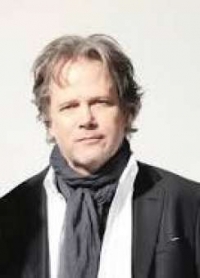
Rolf Undsæt Løvland (born 19 April 1955) is a Norwegian composer, lyricist, arranger, and pianist. Together with Fionnuala Sherry, he formed the Celtic-Nordic group Secret Garden, in which he was the composer, producer, and keyboardist. He began composing at an early age (he formed a band at the age of nine) and grew up studying at the Kristiansand Music Conservatory, later receiving his master's degree from the Norwegian Institute of Music in Oslo. Løvland has won the Eurovision Song Contest twice, composing the songs "La det swinge" in 1985 and "Nocturne" in 1995 alongside Secret Garden, resulting in Norway's first two titles.
Jazz Standard
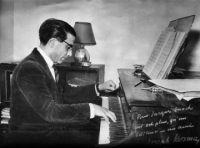
Autumn Leaves" is a popular song and jazz standard composed by Joseph Kosma with original lyrics by Jacques Prévert in French, and later by Johnny Mercer in English. An instrumental version by pianist Roger Williams was a #1 best-seller in the USA Billboard charts of 1955.
Glen Hansard
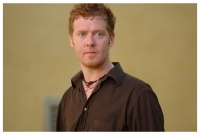
Glen Hansard (born 21 April 1970 in Dublin, Ireland) is the principal songwriter and vocalist/guitarist for Irish rock group The Frames. He is also known for starring in the film Once and co-writing its Academy-Award-winning song, "Falling Slowly."
John Mark Comer

John Mark Comer lives, works and writes in the urban core of Portland, Oregon, with his wife and three children. He is the pastor for teaching and vision at Bridgetown Church. Prior to planting Bridgetown, John Mark was the lead pastor of a suburban megachurch. Before that, he played in a band. ...
Sean Kingston
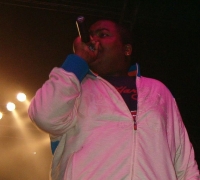
Sean Kingston (born Kisean Jamal Anderson on February 3, 1990) is a Jamaican-American reggae fusion singer and rapper. He is best known for his debut single and #1 hit Beautiful Girls.
James Morrison

James Morrison (born 13 August 1984) is an English singer, songwriter, and guitarist born in Rugby. He now lives in Brighton.
In 2006, he debuted with the single "You Give Me Something" which became a huge hit around Europe, Australia, and Japan, charting at #5 in the UK and #1 in New Zealand His debut album, Undiscovered, went straight to number one in the UK and has sold more than three million copies worldwide.
Morrison performed at the Concert for Diana on July 1, 2007. He performed the songs "Wonderful World" and "You Give Me Something" in honour of Princess Diana.
In 2006, he debuted with the single "You Give Me Something" which became a huge hit around Europe, Australia, and Japan, charting at #5 in the UK and #1 in New Zealand His debut album, Undiscovered, went straight to number one in the UK and has sold more than three million copies worldwide.
Morrison performed at the Concert for Diana on July 1, 2007. He performed the songs "Wonderful World" and "You Give Me Something" in honour of Princess Diana.
Saturday Night Fever
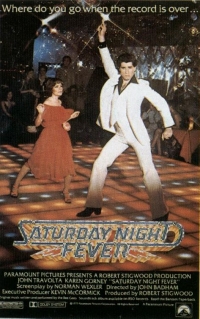
Saturday Night Fever is a 1977 film starring John Travolta as Tony Manero, a troubled Brooklyn youth whose weekend activities are dominated by visits to a local discothèque. While in the disco, Tony is the king, and the visits help him to temporarily forget the reality of his life: a dead-end job, clashes with his unsupportive and squabbling parents, tensions in the local community, and his associations with a gang of dead-beat friends.
A huge commercial success, the movie significantly helped to popularize disco music around the world and made Travolta a household name. The Saturday Night Fever soundtrack, featuring disco songs by the Bee Gees, became the best selling soundtrack at that time and held the record until 1999 when soundtrack to The Bodyguard overtook it. The film is also notable for being one of the first instances of cross-media marketing, with the tie-in soundtrack's single being used to help promote the film before its release and the film popularizing the entire soundtrack after its release.
The story is based upon a 1976 New York magazine article by British writer Nik Cohn, "Tribal Rites of the New Saturday Night." In the late-1990s, Cohn acknowledged that the article had been fabricated. A newcomer to the United States and a stranger to the disco lifestyle, Cohn was unable to make any sense of the subculture he had been assigned to write about. The characters who were to become Tony Manero and his friends sprang almost completely from his imagination. The film also showcased aspects of the music, the dancing, and the subculture surrounding the disco era: symphony-orchestrated melodies, haute-couture styles of clothing, sexual promiscuity, and graceful choreography.
A huge commercial success, the movie significantly helped to popularize disco music around the world and made Travolta a household name. The Saturday Night Fever soundtrack, featuring disco songs by the Bee Gees, became the best selling soundtrack at that time and held the record until 1999 when soundtrack to The Bodyguard overtook it. The film is also notable for being one of the first instances of cross-media marketing, with the tie-in soundtrack's single being used to help promote the film before its release and the film popularizing the entire soundtrack after its release.
The story is based upon a 1976 New York magazine article by British writer Nik Cohn, "Tribal Rites of the New Saturday Night." In the late-1990s, Cohn acknowledged that the article had been fabricated. A newcomer to the United States and a stranger to the disco lifestyle, Cohn was unable to make any sense of the subculture he had been assigned to write about. The characters who were to become Tony Manero and his friends sprang almost completely from his imagination. The film also showcased aspects of the music, the dancing, and the subculture surrounding the disco era: symphony-orchestrated melodies, haute-couture styles of clothing, sexual promiscuity, and graceful choreography.
Miss Saigon
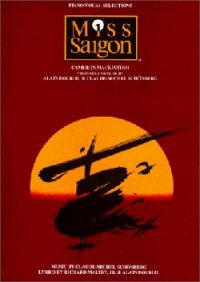
Miss Saigon is a West End musical by Claude-Michel Schönberg and Alain Boublil, with lyrics by Boublil and Richard Maltby, Jr. It premiered at the Theatre Royal, Drury Lane, in London on September 20, 1989, closing after 4,264 performances on October 30, 1999. On April 11, 1991, it opened at the Broadway Theatre in New York City, and closed on January 28, 2001 after 4,092 performances. The musical represented Schönberg and Boublil's second major success, following Les Misérables in 1980. As of August 2007, Miss Saigon is still the 10th longest-running Broadway musical in musical theatre history.
Miss Saigon is a modern adaptation of Giacomo Puccini's opera Madame Butterfly, and similarly tells the tragic tale of a doomed romance involving an Asian woman abandoned by her American lover. The setting of the plot is relocated to the 1970s Saigon during the Vietnam War, and Madame Butterfly's American Lieutenant and Japanese geisha coupling is replaced by a romance between an American GI and a Vietnamese bar girl.
The show's inspiration was reportedly a photograph, inadvertently found by Schönberg in a magazine. The photo showed a Vietnamese mother leaving her child at a departure gate at Tan Son Nhut Air Base to board a plane headed for the United States where her father, an ex-GI, would be in a position to provide a much better life for the child. Schönberg considered this mother's actions for her child to be "The Ultimate Sacrifice," an idea central to the plot of Miss Saigon.
Highlights of the show include the evacuation of the last Americans in Saigon from the Embassy roof by helicopter while a crowd of abandoned Vietnamese scream their despair, the victory parade of the new communist regime and the frenzied night club scene on the edge of defeat.
Miss Saigon was part of the major British influence on Broadway in the 1980s, along with the musicals Cats, The Phantom of the Opera, and Les Misérables.
Miss Saigon is a modern adaptation of Giacomo Puccini's opera Madame Butterfly, and similarly tells the tragic tale of a doomed romance involving an Asian woman abandoned by her American lover. The setting of the plot is relocated to the 1970s Saigon during the Vietnam War, and Madame Butterfly's American Lieutenant and Japanese geisha coupling is replaced by a romance between an American GI and a Vietnamese bar girl.
The show's inspiration was reportedly a photograph, inadvertently found by Schönberg in a magazine. The photo showed a Vietnamese mother leaving her child at a departure gate at Tan Son Nhut Air Base to board a plane headed for the United States where her father, an ex-GI, would be in a position to provide a much better life for the child. Schönberg considered this mother's actions for her child to be "The Ultimate Sacrifice," an idea central to the plot of Miss Saigon.
Highlights of the show include the evacuation of the last Americans in Saigon from the Embassy roof by helicopter while a crowd of abandoned Vietnamese scream their despair, the victory parade of the new communist regime and the frenzied night club scene on the edge of defeat.
Miss Saigon was part of the major British influence on Broadway in the 1980s, along with the musicals Cats, The Phantom of the Opera, and Les Misérables.
Cabaret
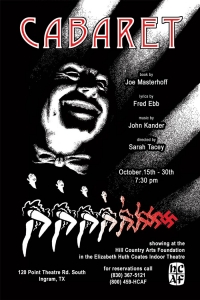
Cabaret is a musical with a book by Joe Masteroff, lyrics by Fred Ebb, and music by John Kander. The 1966 Broadway production became a hit and spawned an acclaimed 1972 film as well as numerous subsequent productions.
Originally entitled Welcome to Berlin, it is based on John Van Druten's play I Am a Camera, which in turn was adapted from the novel Goodbye to Berlin, by Christopher Isherwood. Set in 1929-1930 Berlin on the eve of the Nazis' rise to power, it focuses on nightlife at the seedy Kit Kat Klub and mostly revolves around the English 19-year-old cabaret performer Sally Bowles and her relationship with young American writer, Cliff Bradshaw. A sub-plot involves the doomed romance between German boarding house owner Fräulein Schneider and her elderly suitor Herr Schultz, a Jewish fruit vendor. Overseeing the action is the Emcee, who presides as master of ceremonies at the Kit Kat Klub and serves as a constant metaphor for the current state of society in Weimar Germany throughout the show.
Originally entitled Welcome to Berlin, it is based on John Van Druten's play I Am a Camera, which in turn was adapted from the novel Goodbye to Berlin, by Christopher Isherwood. Set in 1929-1930 Berlin on the eve of the Nazis' rise to power, it focuses on nightlife at the seedy Kit Kat Klub and mostly revolves around the English 19-year-old cabaret performer Sally Bowles and her relationship with young American writer, Cliff Bradshaw. A sub-plot involves the doomed romance between German boarding house owner Fräulein Schneider and her elderly suitor Herr Schultz, a Jewish fruit vendor. Overseeing the action is the Emcee, who presides as master of ceremonies at the Kit Kat Klub and serves as a constant metaphor for the current state of society in Weimar Germany throughout the show.
Nobuo Uematsu

Nobuo Uematsu (植松伸夫 Uematsu Nobuo?, born March 21, 1959) is a Japanese video game composer and musician, best known for scoring the majority of titles in the Final Fantasy series. He is regarded as one of the most famous and respected composers in the video game community. Uematsu is a self-taught musician; he began to play the piano at the age of eleven or twelve, with Elton John as his biggest influence.
Uematsu joined Square (later Square Enix) in 1985, where he met Final Fantasy creator Hironobu Sakaguchi. They have worked together on numerous titles, most notably the games in the Final Fantasy series. After nearly 20 years in the company, he left Square Enix in 2004 and founded his own company called Smile Please, as well as the music production company Dog Ear Records. He has since composed music as a freelancer for video games primarily developed by Square Enix and Sakaguchi's development studio Mistwalker.
A handful of soundtracks and arranged albums of Uematsu's game scores have been released. Pieces from his video game works have been performed in concerts worldwide, and numerous Final Fantasy concerts have also been held. He has worked with Grammy Award-winning conductor Arnie Roth on several of these concerts. In 2002, he formed a rock band with colleagues Kenichiro Fukui and Tsuyoshi Sekito called The Black Mages, in which Uematsu plays the keyboard. The band plays arranged rock versions of Uematsu's Final Fantasy compositions.
Uematsu joined Square (later Square Enix) in 1985, where he met Final Fantasy creator Hironobu Sakaguchi. They have worked together on numerous titles, most notably the games in the Final Fantasy series. After nearly 20 years in the company, he left Square Enix in 2004 and founded his own company called Smile Please, as well as the music production company Dog Ear Records. He has since composed music as a freelancer for video games primarily developed by Square Enix and Sakaguchi's development studio Mistwalker.
A handful of soundtracks and arranged albums of Uematsu's game scores have been released. Pieces from his video game works have been performed in concerts worldwide, and numerous Final Fantasy concerts have also been held. He has worked with Grammy Award-winning conductor Arnie Roth on several of these concerts. In 2002, he formed a rock band with colleagues Kenichiro Fukui and Tsuyoshi Sekito called The Black Mages, in which Uematsu plays the keyboard. The band plays arranged rock versions of Uematsu's Final Fantasy compositions.
The Music Tech Dictionary
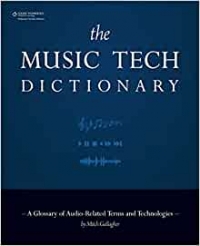
The Music Tech Dictionary" provides the definitive glossary of music technology and pro audio topics and terms. It focuses on the terminology, techniques, and formats that are common in the audio and music technology field, and offers concise, pithy explanations of what each term represents. Users will be able to look up any music software, music technology, or audio related term they run across in their software, in articles, or in studios, for a short, complete overview.
Real Book

The Real Book refers to compilations of lead sheets for jazz standards. It usually refers to the first volume of a series of books transcribed and collated by Berklee College of Music students during the 1970s.The name is derived from "fake books", so called because they contained only rough outlines of music pieces rather than fully notated scores. Early fake books were often used by professional bands who performed mostly standards, often more geared to society and dance bands rather than jazz ensembles, and devoted much space to show tunes, novelty tunes, traditional jazz, etc. The first three Real Book volumes, in contrast, contained many bebop and other jazz standards that were likely to be encountered on jazz gigs at the time. For this reason, the books were quickly adopted among jazz players in the 1970s, particularly on the east coast.
Music theory

Music theory is the study of the practices and possibilities of music. The Oxford Companion to Music describes three interrelated uses of the term "music theory"
Augusta Mary Wakefield
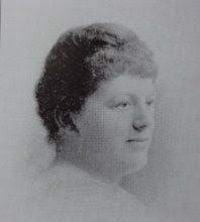
Augusta Mary Wakefield Singer Born: 1853 Died: September 16, 1910
Aladdin
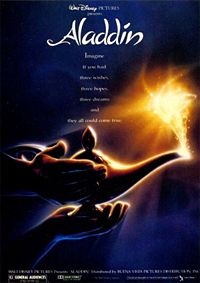
Aladdin is a 1992 animated feature produced by Walt Disney Feature Animation, and released by Walt Disney Pictures on November 25, 1992. The thirty-first animated feature in the Disney animated features canon, the film is based on the Arab folktale of Aladdin and the magic lamp from One Thousand and One Nights. Several characters and plot elements are also based on the 1940 version of The Thief of Bagdad.
The film was directed by John Musker and Ron Clements, both of whom had just finished writing and directing The Little Mermaid (1989). The musical score was written by Alan Menken, with song lyrics written by Howard Ashman and Tim Rice. Aladdin features the voices of Scott Weinger, Jonathan Freeman, Linda Larkin, Frank Welker, Gilbert Gottfried, Douglas Seale, and, as the Genie of the lamp, Robin Williams. Although this was not the first time in which a major actor such as Williams provided voice-over work for an animated film, it was the first major American animated feature film in which particular attention was paid to a celebrity voice cast member, such as a major movie star, in the film as part of its promotion. This has led to a subsequent increased attention to the casts of later productions, as a major element of animated film marketing.
Aladdin was followed by two direct-to-video sequels: The Return of Jafar (1994) and Aladdin and the King of Thieves (1996), and an animated television series, Aladdin, set between the two sequels.
The film was directed by John Musker and Ron Clements, both of whom had just finished writing and directing The Little Mermaid (1989). The musical score was written by Alan Menken, with song lyrics written by Howard Ashman and Tim Rice. Aladdin features the voices of Scott Weinger, Jonathan Freeman, Linda Larkin, Frank Welker, Gilbert Gottfried, Douglas Seale, and, as the Genie of the lamp, Robin Williams. Although this was not the first time in which a major actor such as Williams provided voice-over work for an animated film, it was the first major American animated feature film in which particular attention was paid to a celebrity voice cast member, such as a major movie star, in the film as part of its promotion. This has led to a subsequent increased attention to the casts of later productions, as a major element of animated film marketing.
Aladdin was followed by two direct-to-video sequels: The Return of Jafar (1994) and Aladdin and the King of Thieves (1996), and an animated television series, Aladdin, set between the two sequels.
Muse

Muse are a British rock band formed in Teignmouth, Devon, United Kingdom in 1994 under the alias of Rocket Baby Dolls. The band comprises Matthew Bellamy (vocals, guitar and piano), Christopher Wolstenholme (bass guitar and backing vocals) and Dominic Howard (drums and percussion). Muse's style can be considered as a mixture of many musical genres, most notably alternative rock, classical music and electronica. Muse are known best for their energetic and visually dazzling live performances and on June 16th & 17th, 2007 became the first band to sell out the newly built Wembley Stadium in London. Muse have released four studio albums with their first, Showbiz, released in 1999, followed by Origin of Symmetry in 2001 and Absolution in 2003. The most recent, Black Holes & Revelations (2006), was also the most critically acclaimed, garnering the band a Mercury Prize nomination and a third place finish in the NME Albums of the Year list for 2006. Muse have won various awards throughout their career including 5 MTV Europe Music Awards, 5 Q Awards, 4 NME Awards and 2 Brit awards.
Gary Jules
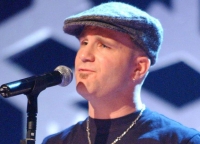
Gary Jules (born March 19, 1969 in Fresno, California as Gary Jules Aguirre) is an American singer-songwriter, best known for his cover of Tears for Fears' third single "Mad World", which he recorded together with friend Michael Andrews for the cult film Donnie Darko. It became the UK Christmas Number One single of 2003. Since then it has been used on popular American TV shows, and most recently in the commercial for the Xbox 360 video game Gears of War.
Some of his early projects / bands were The Ivory Knights, Our Town Pansies, Woodenfish, Kofi, The Origin, "Invisible", "No poetry," and "Heroes and Heroin."
Some of his early projects / bands were The Ivory Knights, Our Town Pansies, Woodenfish, Kofi, The Origin, "Invisible", "No poetry," and "Heroes and Heroin."
Georg Philipp Telemann
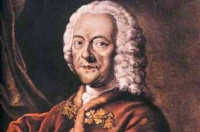
Georg Philipp Telemann was a German Baroque composer and multi-instrumentalist. Almost completely self-taught in music, he became a composer against his family's wishes.
Jonathan Reid Gealt

Jonathan Reid Gealt was born in Glens Falls Hospital and grew up in the small upstate town of Queensbury, New York. He attended the Boston Conservatory and graduated with a Bachelor of Fine Arts in Musical Theater Performance, having a dual emphasis in both dance and composition.
Kenneth Gamble
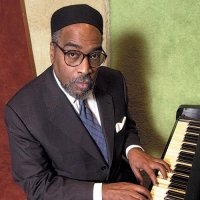
Kenneth Gamble (born August 11, 1943, Philadelphia, Pennsylvania) and Leon A. Huff (born April 8, 1942, Camden, New Jersey) are an American songwriting and production team credited for developing the Philadelphia soul music genre (also known as Philly sound) of the 1970s. In addition to forming their own label, Philadelphia International Records, Gamble and Huff have written and produced 175 gold and platinum records, earning them an induction into the Rock and Roll Hall of Fame in the non-performer category in March 2008.
Will Huff
William Lockwood Huff (January 16, 1875 – November 5, 1942) was a composer of band music best known for his military marches and the circus march The Squealer. He was born in Massieville, Ohio and grew up in Coalton, Ohio. He took up his father's profession as a photographer and later became an interior decorator. He briefly performed in a circus band and in the National Guard, playing cornet and alto horn. His earliest works were published during the Spanish–American War with a later spurt of activity around World War I. After the later war, he settled down in Chillicothe, Ohio where he led an Odd Fellows band until his death in 1942.
Anton Goudsmit
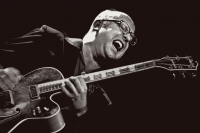
Amsterdam based guitarist and composer Anton Goudsmit is a whirlwind of creativity, capable of thrilling the audience with his irresistable groove and unique musical personality.
Pe. José Cândido da Silva
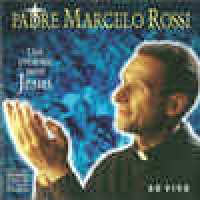
Pe. José Cândido da Silva Musical artist Songs Eu Te Ofereço o Meu Viver Cordeiro de Deus Que Tirais o Pecado do Mundo Deus Está Chamando
Anonymous

Easy piano sheets to teach kids how to play piano.
Rimsky-Korsakov
Nikolai Andreyevich Rimsky-Korsakov (Russian: Никола́й Андре́евич Ри́мский-Ко́рсаков, Nikolaj Andreevič Rimskij-Korsakov, Russian pronunciation: ) (18 March 1844, – 21 June 1908) was a Russian composer, and a member of the group of composers known as The Five. He was a master of orchestration. His best-known orchestral compositions—Capriccio Espagnol, the Russian Easter Festival Overture, and the symphonic suite Scheherazade—are considered staples of the classical music repertoire, along with suites and excerpts from some of his 15 operas. Scheherazade is an example of his frequent use of fairy tale and folk subjects.
Rimsky-Korsakov believed, as did fellow composer Mily Balakirev and critic Vladimir Stasov, in developing a nationalistic style of classical music. This style employed Russian folk song and lore along with exotic harmonic, melodic and rhythmic elements in a practice known as musical orientalism, and eschewed traditional Western compositional methods. However, Rimsky-Korsakov appreciated Western musical techniques after he became a professor of musical composition, harmony and orchestration at the Saint Petersburg Conservatory in 1871. He undertook a rigorous three-year program of self-education and became a master of Western methods, incorporating them alongside the influences of Mikhail Glinka and fellow members of The Five. His techniques of composition and orchestration were further enriched by his exposure to the works of Richard Wagner.
Rimsky-Korsakov believed, as did fellow composer Mily Balakirev and critic Vladimir Stasov, in developing a nationalistic style of classical music. This style employed Russian folk song and lore along with exotic harmonic, melodic and rhythmic elements in a practice known as musical orientalism, and eschewed traditional Western compositional methods. However, Rimsky-Korsakov appreciated Western musical techniques after he became a professor of musical composition, harmony and orchestration at the Saint Petersburg Conservatory in 1871. He undertook a rigorous three-year program of self-education and became a master of Western methods, incorporating them alongside the influences of Mikhail Glinka and fellow members of The Five. His techniques of composition and orchestration were further enriched by his exposure to the works of Richard Wagner.
Yann Tiersen

Guillaume Yann Tiersen (born 23 June 1970) is a French musician and composer known internationally for composing the score to the Jean-Pierre Jeunet movie Amélie. His music is recognized by its use of a large variety of instruments in relatively minimalist compositions, often with a touch of either European classical music or French folk music, using primarily the piano, accordion or violin together with instruments like the melodica, xylophone, toy piano, ondes martenot, harpsichord and typewriter. His musical style is reminiscent of Frédéric Chopin, Erik Satie, Philip Glass and Michael Nyman.
Yiruma

Yiruma (born February 15 1978, Seoul, Korea) is a South Korean piano music composer. He is married to Son Hye-im.
Yiruma is well-known throughout the world, and his albums are sold all over Asia, as well as the United States and Europe. His most famous pieces are "Kiss the Rain", and also "River Flows in You". These pieces are widely mistaken for being associated with the movie Twilight. Although he formerly held dual citizenship as a citizen of the United Kingdom and South Korea, in July 2006 he gave up his British citizenship and entered the Republic of Korea Navy to begin his military service, which is compulsory for all male South Koreans. He has lived in Osaka, Japan for 5 years to promote album sales before giving up his dual citizenship.
Yiruma is well-known throughout the world, and his albums are sold all over Asia, as well as the United States and Europe. His most famous pieces are "Kiss the Rain", and also "River Flows in You". These pieces are widely mistaken for being associated with the movie Twilight. Although he formerly held dual citizenship as a citizen of the United Kingdom and South Korea, in July 2006 he gave up his British citizenship and entered the Republic of Korea Navy to begin his military service, which is compulsory for all male South Koreans. He has lived in Osaka, Japan for 5 years to promote album sales before giving up his dual citizenship.
Zez Confrey
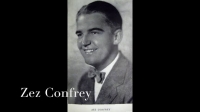
Edward Elzear "Zez" Confrey was an American composer and performer of novelty piano and jazz music. His most noted works were "Kitten on the Keys" and "Dizzy Fingers." Studying at the Chicago Musical College and becoming enthralled by French impressionists played a critical role in how he composed and performed music.
Chicago
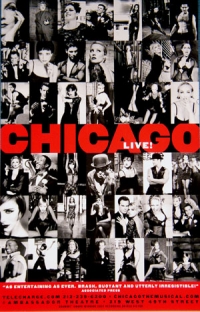
Chicago is a Kander and Ebb musical set in prohibition era Chicago. The book is by Ebb and Bob Fosse. The story is a satire on corruption in the administration of criminal justice, and the concept of the "celebrity criminal." The musical is based on a 1926 play of the same name by reporter Maurine Dallas Watkins about actual criminals and crimes she had reported on.
The original 1975 Broadway production ran for a total of 936 performances. Bob Fosse choreographed the original production, and his style is strongly identified with the show. Chicago's 1996 Broadway revival holds the record for the longest-running musical revival on Broadway (not counting the revue Oh! Calcutta!) and, as of March 2, 2008, it has played for more than 4,684 performances. The revival was followed by a production on London's West End and several tours and international productions. An Academy Award-winning film version of the musical was released in 2002.
The original 1975 Broadway production ran for a total of 936 performances. Bob Fosse choreographed the original production, and his style is strongly identified with the show. Chicago's 1996 Broadway revival holds the record for the longest-running musical revival on Broadway (not counting the revue Oh! Calcutta!) and, as of March 2, 2008, it has played for more than 4,684 performances. The revival was followed by a production on London's West End and several tours and international productions. An Academy Award-winning film version of the musical was released in 2002.
Otis Spann
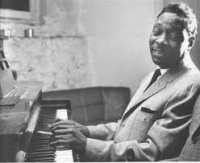
Otis Spann (March 21, 1924 or 1930 – April 24, 1970) was an American blues musician, whom many consider to be the leading postwar Chicago blues pianist.Sources differ over Spann's early years. Some state that he was born in Jackson, Mississippi, in 1930, but the researchers Bob Eagle and Eric LeBlanc concluded, on the basis of census records and other official information, that he was born in 1924 in Belzoni, Mississippi.[
Glenn Miller
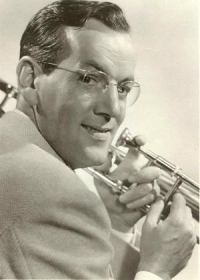
Alton Glenn Miller (March 1, 1904–presumably December 15, 1944), was an American jazz musician and band leader in the swing era. He was one of the best-selling recording artists from 1939 to 1942, leading one of the best known "Big Bands". Miller's signature recordings include, "In the Mood", "Tuxedo Junction", "Chattanooga Choo Choo", "Moonlight Serenade", "Little Brown Jug", and "Pennsylvania 6-5000". While travelling to entertain U.S. troops in France during World War II, Miller's plane disappeared in bad weather. His body was never found.
The Glenn Miller Orchestra is still performing today under the direction of Larry O'Brien. Glenn once said, "A band ought to have a sound all of its own. It ought to have a personality." His band certainly had their own sound, and it is a sound that is still popular after over fifty years.
The Glenn Miller Orchestra is still performing today under the direction of Larry O'Brien. Glenn once said, "A band ought to have a sound all of its own. It ought to have a personality." His band certainly had their own sound, and it is a sound that is still popular after over fifty years.
Arthur Fields
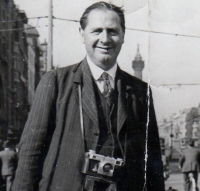
Arthur Fields (August 6, 1884 – March 29, 1953) was an American singer (baritone) and songwriter.Grey Gull record from late 1921 featuring Arthur Fields singing Weep No More, My Mammy. Arthur Fields performs I fall Down An' Go Boom with his Assassinators (1929).He was born Abraham Finkelstein in Philadelphia, Pennsylvania, but grew up mainly in Utica, New York. He became a professional singer as a youngster.Around 1908, he toured with Guy Brother's Minstrel Show, and helped form a vaudeville act "Weston, Fields and Carroll".His first hit as a songwriter was "On the Mississippi" (1912), which he wrote the music for with Harry Carroll and Ballard MacDonald supplied the lyrics. In 1914 he wrote the lyrics to "Aba Daba Honeymoon", which was revived for the 1950 M.G.M. film Two Weeks With Love and thus got a renewed popularity which brought Fields large royalty incomes during his last two years.
Selena Gomez

Selena Marie Gomez (born July 22, 1992) is an American singer and actress. Gomez first made her debut appearing as Gianna in Barney & Friends, lasting from 2002 to 2004. Following this, Gomez had cameo roles in films such as Spy Kids 3-D: Game Over (2003) and Walker, Texas Ranger: Trial by Fire (2005). In 2006, Gomez appeared as a guest star on an episode of the Disney Channel series The Suite Life of Zack and Cody, as well as Hannah Montana. Following this, Gomez starred in the Disney Channel television series Wizards of Waverly Place. The series was a critical and commercial success, earning Gomez numerous awards and nominations. Gomez later appeared in numerous Disney Channel series and films including Jonas Brothers: Living the Dream (2008) and Disney Channel Games (2008). In 2009, Gomez appeared in the films Princess Protection Program and Wizards of Waverly Place: The Movie before releasing her first studio album as Selena Gomez & the Scene, titled Kiss & Tell. The album was a commercial success, peaking inside the Top 10 of the Billboard 200.
Arcangelo Corelli

Arcangelo Corelli (17 February 1653 – 8 January 1713) was an Italian violinist and composer of Baroque music.
Corelli was born at Fusignano, in the current-day province of Ravenna, although at the time it was in the province of Ferrara. Little is known about his early life. His master on the violin was Giovanni Battista Bassani. Matteo Simonelli, the well-known singer of the pope’s chapel, taught him composition.
He gained his first major success in Paris at the age of nineteen, and to this he owed his European reputation. From Paris, Corelli went to Germany. In 1681 he was in the service of the electoral prince of Bavaria; between 1680 and 1685 he spent a considerable time in the house of his friend and fellow violinist-composer Cristiano Farinelli (believed to be the uncle of the celebrated castrato Farinelli).
In 1685 Corelli was in Rome, where he led the festival performances of music for Queen Christina of Sweden, and he was also a favorite of Cardinal Pietro Ottoboni, grandnephew of another Cardinal Pietro Ottoboni, who in 1689 became Pope Alexander VIII. From 1689 to 1690 he was in Modena; the Duke of Modena was generous to him. In 1708 he returned to Rome, living in the palace of Cardinal Ottoboni. His visit to Naples, at the invitation of the king, took place in the same year.
The style of execution introduced by Corelli and preserved by his pupils, such as Francesco Geminiani, Pietro Locatelli, and many others, was of vital importance for the development of violin playing. It has been said that the paths of all of the famous violinist-composers of 18th-century Italy led to Arcangelo Corelli who was their "iconic point of reference." (Toussaint Loviko, in the program notes to Italian Violin Concertos, Veritas, 2003)
Corelli was born at Fusignano, in the current-day province of Ravenna, although at the time it was in the province of Ferrara. Little is known about his early life. His master on the violin was Giovanni Battista Bassani. Matteo Simonelli, the well-known singer of the pope’s chapel, taught him composition.
He gained his first major success in Paris at the age of nineteen, and to this he owed his European reputation. From Paris, Corelli went to Germany. In 1681 he was in the service of the electoral prince of Bavaria; between 1680 and 1685 he spent a considerable time in the house of his friend and fellow violinist-composer Cristiano Farinelli (believed to be the uncle of the celebrated castrato Farinelli).
In 1685 Corelli was in Rome, where he led the festival performances of music for Queen Christina of Sweden, and he was also a favorite of Cardinal Pietro Ottoboni, grandnephew of another Cardinal Pietro Ottoboni, who in 1689 became Pope Alexander VIII. From 1689 to 1690 he was in Modena; the Duke of Modena was generous to him. In 1708 he returned to Rome, living in the palace of Cardinal Ottoboni. His visit to Naples, at the invitation of the king, took place in the same year.
The style of execution introduced by Corelli and preserved by his pupils, such as Francesco Geminiani, Pietro Locatelli, and many others, was of vital importance for the development of violin playing. It has been said that the paths of all of the famous violinist-composers of 18th-century Italy led to Arcangelo Corelli who was their "iconic point of reference." (Toussaint Loviko, in the program notes to Italian Violin Concertos, Veritas, 2003)
Andrew Lloyd Webber

Andrew Lloyd Webber, Baron Lloyd-Webber (born 22 March 1948) is an English composer of musical theatre, the elder son of organist William Lloyd Webber and brother of the cellist Julian Lloyd Webber. Lloyd Webber started composing at the age of six, and published his first piece at the age of nine.
Lloyd Webber has achieved great popular success, with several musicals that have run for more than a decade both in the West End and on Broadway. He has composed 13 musicals, a song cycle, a set of variations, two film scores, and a Latin Requiem Mass. He has also gained a number of honours, including a knighthood in 1992, followed by a peerage from the British Government for services to Music, seven Tony Awards (and 40 nominations), three Grammy Awards (with an additional 60 nominations), an Academy Award (two other nominations), seven Olivier Awards (with 100 nominations), a Golden Globe, and the Kennedy Center Honors in 2006. Several of his songs, notably "The Music of the Night" from The Phantom of the Opera, "I Don't Know How to Love Him" from Jesus Christ Superstar, "Don't Cry for Me, Argentina" from Evita, "Any Dream Will Do" from Joseph and the Amazing Technicolor Dreamcoat and "Memory" from Cats have been widely recorded and were hits outside of their parent musicals. His company, the Really Useful Group, is one of the largest theatre operators in London.
Producers in several parts of the UK have staged productions, including national tours, of Lloyd Webber's musicals under licence from the Really Useful Group. According to britishhitsongwriters.com, he is the one hundredth most successful songwriter in U.K. singles chart history, based on weeks that his compositions have spent on the chart.
Lloyd Webber has achieved great popular success, with several musicals that have run for more than a decade both in the West End and on Broadway. He has composed 13 musicals, a song cycle, a set of variations, two film scores, and a Latin Requiem Mass. He has also gained a number of honours, including a knighthood in 1992, followed by a peerage from the British Government for services to Music, seven Tony Awards (and 40 nominations), three Grammy Awards (with an additional 60 nominations), an Academy Award (two other nominations), seven Olivier Awards (with 100 nominations), a Golden Globe, and the Kennedy Center Honors in 2006. Several of his songs, notably "The Music of the Night" from The Phantom of the Opera, "I Don't Know How to Love Him" from Jesus Christ Superstar, "Don't Cry for Me, Argentina" from Evita, "Any Dream Will Do" from Joseph and the Amazing Technicolor Dreamcoat and "Memory" from Cats have been widely recorded and were hits outside of their parent musicals. His company, the Really Useful Group, is one of the largest theatre operators in London.
Producers in several parts of the UK have staged productions, including national tours, of Lloyd Webber's musicals under licence from the Really Useful Group. According to britishhitsongwriters.com, he is the one hundredth most successful songwriter in U.K. singles chart history, based on weeks that his compositions have spent on the chart.
Yasunori Mitsuda
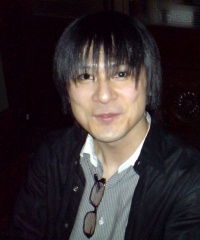
Yasunori Mitsuda (光田 康典 Mitsuda Yasunori?, born January 21, 1972) is a Japanese video game composer, sound programmer, and musician. He has composed music for or worked on over 35 games, and has contributed to over 15 other albums. He is best known for his compositions for the video games Chrono Trigger, Chrono Cross, Shadow Hearts, Shadow Hearts: Covenant, Xenogears, Xenosaga Episode I, and Mario Party. He began composing video game music for his own games in high school, and after graduation attended Junior College of Music in Tokyo. In 1992 upon graduation he joined Square (now Square Enix) as a composer after seeing a magazine advertisement in an office he was visiting with his professor.
Despite his job title as a composer, Mitsuda worked for two years as a sound engineer. In 1994, after threatening to quit to Square's vice president, Hironobu Sakaguchi, he was assigned to compose the soundtrack to Chrono Trigger. After the game's success and the music's acclaim, he went on to compose several other games for Square, including Xenogears. In 1998 Mitsuda left Square to work as a freelance composer, founding his own music production studio, Procyon Studio, in 2001 as well as his own record label, Sleigh Bells. The company has since expanded to nine employees, and Mitsuda continues to compose for video games, as well as for anime series and his own independent albums.
Despite his job title as a composer, Mitsuda worked for two years as a sound engineer. In 1994, after threatening to quit to Square's vice president, Hironobu Sakaguchi, he was assigned to compose the soundtrack to Chrono Trigger. After the game's success and the music's acclaim, he went on to compose several other games for Square, including Xenogears. In 1998 Mitsuda left Square to work as a freelance composer, founding his own music production studio, Procyon Studio, in 2001 as well as his own record label, Sleigh Bells. The company has since expanded to nine employees, and Mitsuda continues to compose for video games, as well as for anime series and his own independent albums.
George Gershwin

George Gershwin (September 26, 1898 – July 11, 1937) was an American composer. He wrote most of his vocal and theatrical works in collaboration with his elder brother, lyricist Ira Gershwin. George Gershwin composed songs both for Broadway and for the classical concert hall. He also wrote popular songs with success.
Many of his compositions have been used on television and in numerous films, and many became jazz standards. The jazz singer Ella Fitzgerald recorded many of the Gershwins' songs on her 1959 Gershwin Songbook (arranged by Nelson Riddle). Countless singers and musicians have recorded Gershwin songs, including Fred Astaire, Louis Armstrong, Al Jolson, Bobby Darin, Art Tatum, Bing Crosby, Janis Joplin, John Coltrane, Frank Sinatra, Billie Holiday, Sam Cooke, Miles Davis, Herbie Hancock, Madonna, Judy Garland, Julie Andrews, Barbra Streisand, Marni Nixon, Natalie Cole, Patti Austin, Nina Simone, Maureen McGovern, John Fahey, The Residents, Than & Sam, Sublime, and Sting. A residential building is named after him on the Stony Brook University campus.
Many of his compositions have been used on television and in numerous films, and many became jazz standards. The jazz singer Ella Fitzgerald recorded many of the Gershwins' songs on her 1959 Gershwin Songbook (arranged by Nelson Riddle). Countless singers and musicians have recorded Gershwin songs, including Fred Astaire, Louis Armstrong, Al Jolson, Bobby Darin, Art Tatum, Bing Crosby, Janis Joplin, John Coltrane, Frank Sinatra, Billie Holiday, Sam Cooke, Miles Davis, Herbie Hancock, Madonna, Judy Garland, Julie Andrews, Barbra Streisand, Marni Nixon, Natalie Cole, Patti Austin, Nina Simone, Maureen McGovern, John Fahey, The Residents, Than & Sam, Sublime, and Sting. A residential building is named after him on the Stony Brook University campus.
Michael Montes
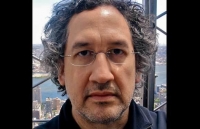
Michael Montes is a Peruvian-American composer for films, album projects and all other media.Michael Montes was born in Houston, Texas, the son of American nurse Anne Pryor and Peruvian doctor Mario Montes who came to the United States in the early fifties. The family eventually settled in Eden, NY.He began piano studies at age seven, quit in frustration with his teacher's methods, returned feverishly at age thirteen and later dropped out of medical school in order to pursue composition as his life's work.As a child his first film music experience occurred while watching the Jules Verne classic Mysterious Island. Years later he discovered that Bernard Herrmann had composed the score.Later on Pink Floyd became an influence, specifically their innovative production techniques and use of hallucinatory textures.
Nate Anderson

Nate Anderson. Musician at Kaleigh Baker Duo and Band. JunkieRushUniversity of Central Florida. Queens County, New York, United States100 connections.
Randy Randolph
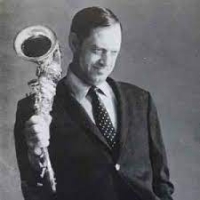
Randy Randolph Musician Songs Percolator Percolator / Yakety Sax · 2008 Yakety Sax Percolator / Yakety Sax · 2018
Greenback Dollar
Greenback Dollar
Huayno
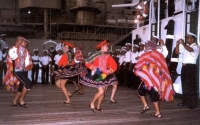
Huayno (Waynu in Quechua) is a genre of popular Andean music and dance. It is especially common in Peru, Bolivia and Chile, and is practiced by a variety of ethnic groups, especially the Quechua people. The history of Huayno dates back to colonial Peru as a combination of traditional rural folk music and popular urban dance music. High-pitched vocals are accompanied by a variety of instruments, including quena (flute), harp, siku (panpipe), accordion, saxophone, charango, lute, violin, guitar, and mandolin. Some elements of huayno originate in the music of the pre-Columbian Andes, especially on the territory of the former Inca Empire. Huayno utilizes a distinctive rhythm in which the first beat is stressed and followed by two short beats.
Koji Kondo

Koji Kondo (近藤浩治 Kondō Kōji?, born August 13, 1960) is a Japanese video game composer and sound director who has been employed at Nintendo since 1984. He is best known for scoring numerous titles in the Mario and The Legend of Zelda series.
Radiohead

Radiohead are an English alternative rock band from Oxfordshire. The band is composed of Thom Yorke (lead vocals, rhythm guitar, piano, electronics), Jonny Greenwood (lead guitar, other instruments), Ed O'Brien (guitar, backing vocals), Colin Greenwood (bass guitar, synthesisers) and Phil Selway (drums, percussion). Since 1993, Radiohead have released seven studio albums. The band have sold over 25 million albums as of 2007.
Radiohead released their first single, "Creep", in 1992. Their debut album, Pablo Honey, followed in 1993. "Creep" was initially unsuccessful, but the song became a worldwide hit when reissued a year later, and the band were almost branded as one hit wonders. Radiohead's popularity in the United Kingdom increased with the release of their second album, The Bends (1995). The band's textured guitar atmospheres and Yorke's falsetto singing were warmly received by critics and fans. Radiohead's third album, OK Computer (1997), propelled the band to greater fame worldwide. Featuring an expansive sound and themes of alienation from the modern world, OK Computer has often been acclaimed as a landmark record of the 1990s.
The release of Kid A (2000) and Amnesiac (2001) saw Radiohead reach the peak of their popularity, although the albums divided critical opinion. This period marked a change in Radiohead's musical style, with their incorporation of avant-garde electronic music, Krautrock and jazz influences. Hail to the Thief (2003), which mixed guitar-driven rock with electronics and contemporary lyrics, was the band's final album for their record label, EMI. Radiohead's seventh album, In Rainbows (2007), was first released independently as a digital download for which customers selected their own price, later meeting with critical and chart success.
Radiohead released their first single, "Creep", in 1992. Their debut album, Pablo Honey, followed in 1993. "Creep" was initially unsuccessful, but the song became a worldwide hit when reissued a year later, and the band were almost branded as one hit wonders. Radiohead's popularity in the United Kingdom increased with the release of their second album, The Bends (1995). The band's textured guitar atmospheres and Yorke's falsetto singing were warmly received by critics and fans. Radiohead's third album, OK Computer (1997), propelled the band to greater fame worldwide. Featuring an expansive sound and themes of alienation from the modern world, OK Computer has often been acclaimed as a landmark record of the 1990s.
The release of Kid A (2000) and Amnesiac (2001) saw Radiohead reach the peak of their popularity, although the albums divided critical opinion. This period marked a change in Radiohead's musical style, with their incorporation of avant-garde electronic music, Krautrock and jazz influences. Hail to the Thief (2003), which mixed guitar-driven rock with electronics and contemporary lyrics, was the band's final album for their record label, EMI. Radiohead's seventh album, In Rainbows (2007), was first released independently as a digital download for which customers selected their own price, later meeting with critical and chart success.
Sergey Rahmaninov
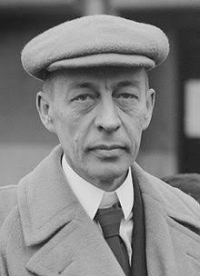
Sergei Vasilievich Rachmaninoff, Russian composer, conductor, pianist. He is one of the greatest pianists and composers of the 20th century. He was the last great composer of Russian romanticism. After the October Revolution in his country, he settled in the USA and became a US citizen
 Sheet Music Max is a site for those who wants to access popular sheet music easily,
letting them download the sheet music for free for trial purposes.
It's completely free to download and try the listed sheet music, but you have to delete the files after 24 hours of trial.
Don't forget, if you like the piece of music you have just learned playing,
treat the artist with respect, and go buy the original sheet music.
Sheet Music Max is a site for those who wants to access popular sheet music easily,
letting them download the sheet music for free for trial purposes.
It's completely free to download and try the listed sheet music, but you have to delete the files after 24 hours of trial.
Don't forget, if you like the piece of music you have just learned playing,
treat the artist with respect, and go buy the original sheet music.
